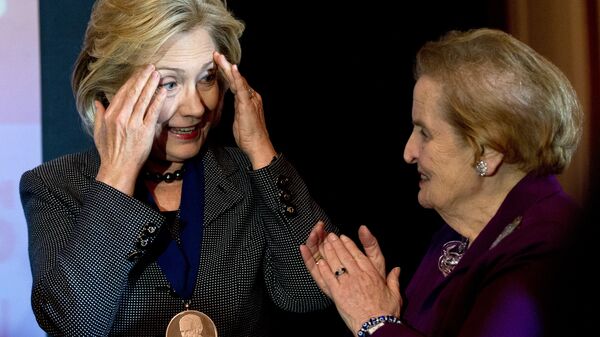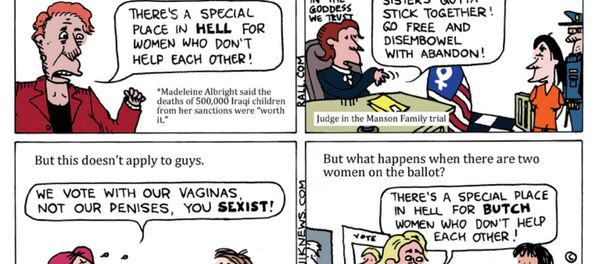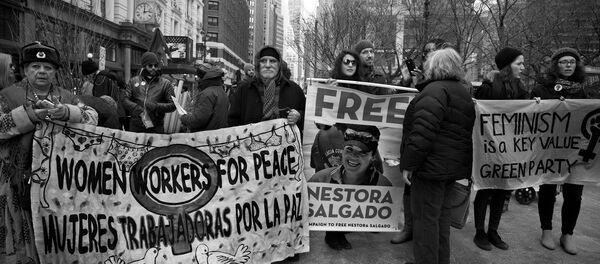Clinton is not the first female presidential candidate in the US. The first woman to offer herself as a candidate for the highest office in the land was Victoria Woodhull, in 1872.
According to McClatchyDC, American women, who only won the right to vote in the country in 1920, are generally enthusiastic about electing a woman to be President, but feel uneasy with the idea of voting for a particular candidate simply because she is a woman.
"It's got to be the right woman," said Jan McGuire, 49, a high school English teacher from Council Bluffs, Iowa. This pretty much sums up the attitude of both supporters and opponents of Hillary Clinton.
McClatchyDC quotes Becca Ites, 30, a high school sports coach in Des Moines, Iowa, saying: "Nothing she says seems authentic to me… I honestly don't believe her. Just because she's a female doesn't mean that she identifies with anything."
In her current campaign, Clinton, in a 180-degree shift from her previous campaign in 2008, plays heavily to women, from addressing female-specific issues, to campaigning with an all-female cast of supporters, including Lilly Ledbetter, EMILY's List president Stephanie Schriock, as well as Senators Jeanne Shaheen, Kirsten Gillibrand, Barbara Mikulski, Amy Klobuchar and Debbie Stabenow.
However, the front running Democratic candidate has trouble convincing women to join her, with many supporting Democratic candidate Bernie Sanders and Republican Donald Trump.
As McClatchyDC puts it, "Trump has won female voters in many primary contests and could appeal to them in a general election by focusing on some of his seemingly more moderate stances on health care and Planned Parenthood."
Women historically tend to vote not from the standpoint of personality, but from common sense, judging a candidate's' platform by their strong and weak points. More interesting is the fact that women who do not support the Clinton candidacy have been strongly criticized by feminists, most notably former Secretary of State Madeleine Albright with her now infamous line delivered last February: "There's a special place in hell for women who don't help each other," made in reference to supporting Clinton.
Feminist icon Gloria Steinem went further, accusing young women of supporting candidate Sanders simply because they were following the "boys." She said, "Women are more for [Clinton] than men are… They're going to get more activist as they grow older. And when you're younger, you think: ‘Where are the boys? The boys are with Bernie.'" This earned Steinem her own share of infamy among feminists.
Despite the active support of women-focused organizations including Emily's List, the Feminist Majority Foundation, NARAL, Pro-Choice America and Planned Parenthood Votes, McClatchyDC says, "to some women, Clinton's wealth, fame and race make her part of the ‘establishment' politics they are fighting against."





